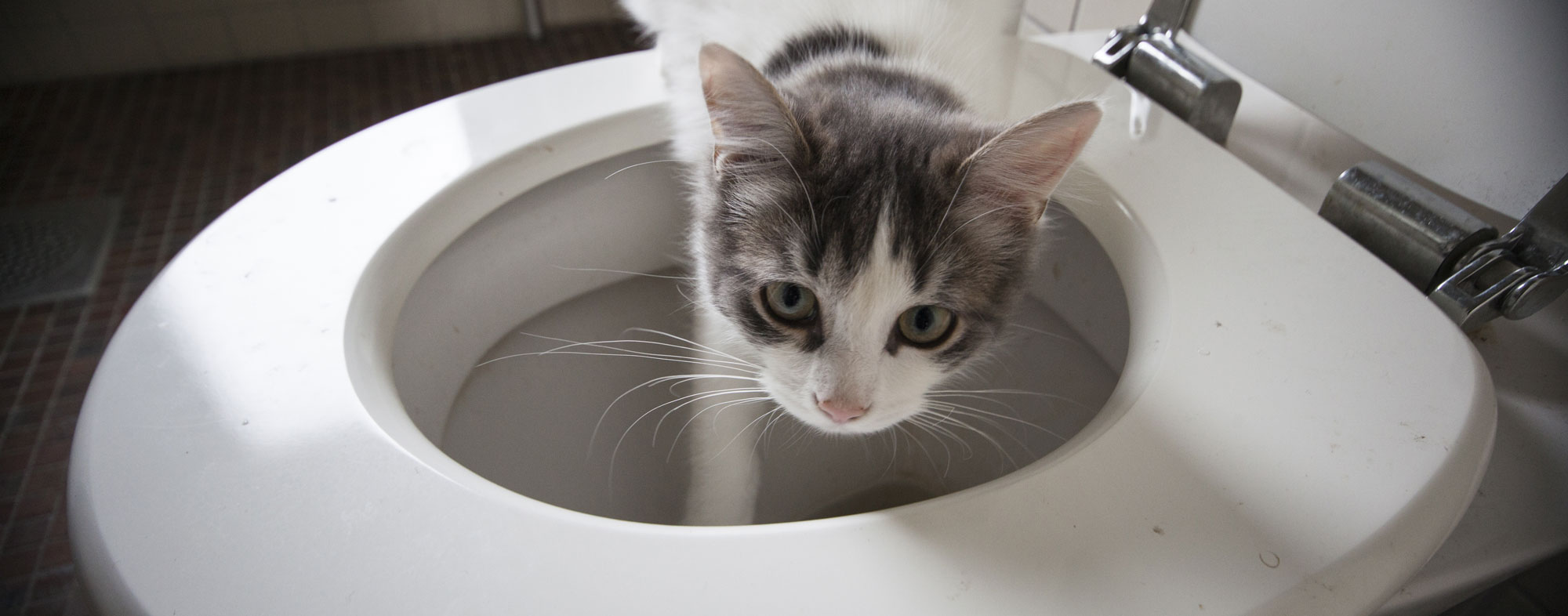Reasons You Should Never Flush Cat Poop Down Your Toilet - Important Facts
Reasons You Should Never Flush Cat Poop Down Your Toilet - Important Facts
Blog Article
Just about every person has got his or her own way of thinking when it comes to How to Dispose of Cat Poop and Litter Without Plastic Bags.

Intro
As feline owners, it's necessary to be mindful of just how we take care of our feline pals' waste. While it may appear hassle-free to purge feline poop down the commode, this practice can have harmful repercussions for both the environment and human wellness.
Alternatives to Flushing
The good news is, there are safer and a lot more responsible means to take care of cat poop. Think about the complying with alternatives:
1. Scoop and Dispose in Trash
The most common method of taking care of cat poop is to scoop it into a naturally degradable bag and toss it in the trash. Make sure to use a devoted clutter scoop and dispose of the waste without delay.
2. Usage Biodegradable Litter
Go with biodegradable pet cat trash made from materials such as corn or wheat. These litters are eco-friendly and can be securely thrown away in the garbage.
3. Hide in the Yard
If you have a backyard, think about burying feline waste in a designated area away from vegetable yards and water sources. Be sure to dig deep enough to prevent contamination of groundwater.
4. Mount a Pet Waste Disposal System
Purchase a pet dog waste disposal system specifically designed for feline waste. These systems use enzymes to break down the waste, reducing smell and environmental effect.
Wellness Risks
In addition to ecological issues, purging feline waste can additionally pose health dangers to human beings. Pet cat feces might have Toxoplasma gondii, a bloodsucker that can create toxoplasmosis-- a potentially extreme illness, specifically for expectant females and individuals with weakened body immune systems.
Environmental Impact
Flushing cat poop presents hazardous pathogens and bloodsuckers into the water supply, positioning a considerable risk to marine ecosystems. These pollutants can adversely affect aquatic life and compromise water top quality.
Final thought
Accountable pet dog possession extends beyond offering food and sanctuary-- it additionally involves correct waste management. By avoiding purging cat poop down the bathroom and going with alternate disposal methods, we can minimize our environmental footprint and protect human health.
Why You Should Never Flush Cat Poop Down the Toilet
A rose by any other name might smell as sweet, but not all poop is created equal. Toilets, and our sewage systems, are designed for human excrement, not animal waste. It might seem like it couldn’t hurt to toss cat feces into the loo, but it’s not a good idea to flush cat poop in the toilet.
First and foremost, assuming your cat uses a litter box, any waste is going to have litter on it. And even the smallest amount of litter can wreak havoc on plumbing.
Over time, small amounts build up, filling up your septic system. Most litter sold today is clumping; it is made from a type of clay that hardens when it gets wet. Ever tried to scrape old clumps from the bottom of a litter box? You know just how cement-hard it can get!
Now imagine just a small clump of that stuck in your pipes. A simple de-clogger like Drano isn’t going to cut it. And that means it’s going to cost you big time to fix it.
Parasitic Contamination
Believe it or not, your healthy kitty may be harboring a nasty parasite. Only cats excrete Toxoplasma in their feces. Yet it rarely causes serious health issues in the cats that are infected. Most people will be fine too if infected. Only pregnant women and people with compromised immune systems are at risk. (If you’ve ever heard how women who are expecting are excused from litter cleaning duty, Toxoplasma is why.)
But other animals may have a problem if infected with the parasite. And human water treatment systems aren’t designed to handle it. As a result, the systems don’t remove the parasite before discharging wastewater into local waterways. Fish, shellfish, and other marine life — otters in particular — are susceptible to toxoplasma. If exposed, most will end up with brain damage and many will die.
Depending on the species of fish, they may end up on someone’s fish hook and, ultimately on someone’s dinner plate. If that someone has a chronic illness, they’re at risk.
Skip the Toilet Training
We know there are folks out there who like to toilet train their cats. And we give them props, it takes a lot of work. But thanks to the toxoplasma, it’s not a good idea.

I was shown that report on How to Dispose of Cat Poop and Litter Without Plastic Bags through a friend on our other website. Loved our piece? Please share it. Help others check it out. Thank you so much for going through it.
Schedule An Appointment Report this page